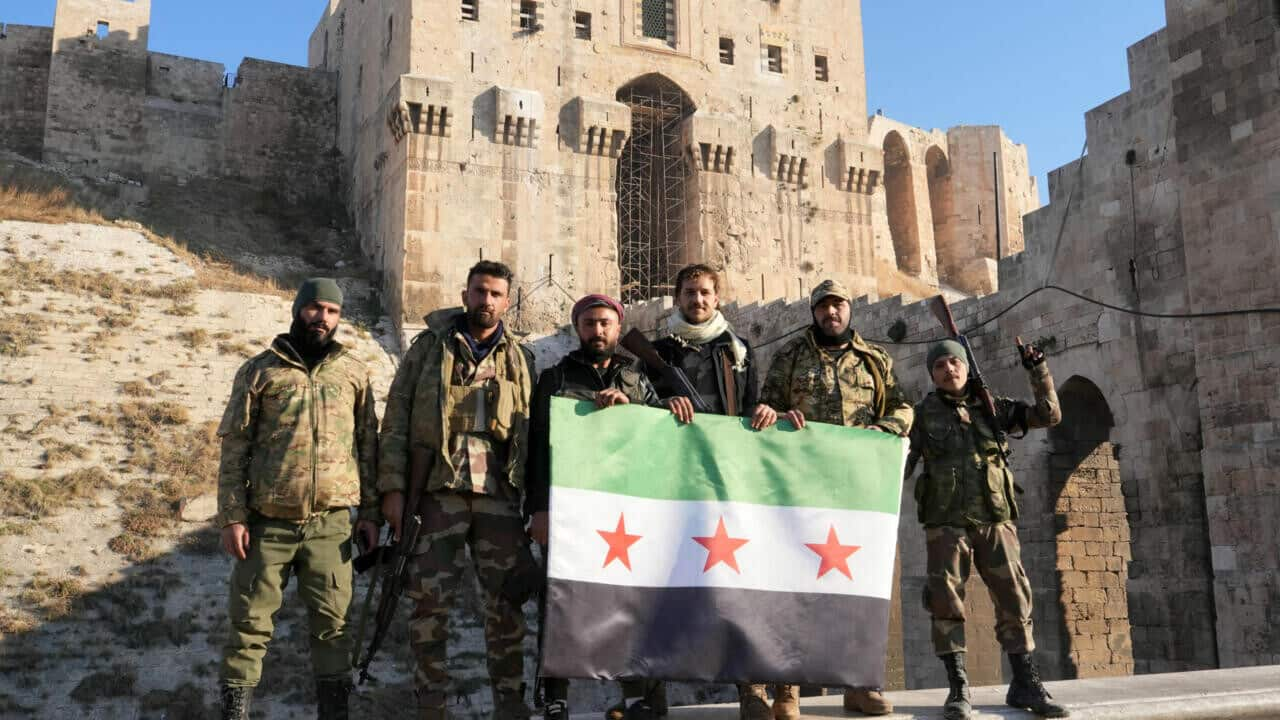
Explained: Which is the rebel group leading new Syrian counteroffensive
What's the story
Rebel fighters in Syria, led by Hayat Tahrir al-Sham (HTS), have launched a major counteroffensive killing over 400. The insurgents have managed to take control of Aleppo, the country's second-largest city. The recent conflict has killed 412 people, including 61 civilians, according to the Syrian Observatory for Human Rights. Thousands of these rebel fighters have also moved into several villages and towns in Hama.
Group's origin
What is Hayat Tahrir al-Sham
Hayat Tahrir al-Sham (HTS) was born out of Jabhat al-Nusra, an Al-Qaeda affiliate, in 2011. Under Abu Mohammed al-Jawlani's leadership, HTS became a formidable force against Syrian President Bashar Assad. In 2016, HTS severed ties with Al-Qaeda and merged with other groups to form its current structure. The US State Department officially designated HTS as a Foreign Terrorist Organisation in 2018.
Leader profile
The man behind HTS
Abu Mohammed al-Jawlani, the head of Hayat Tahrir al-Sham (HTS), was previously an Al-Qaeda operative. He joined the terror outfit in 2003 to fight American forces in Iraq and later emerged as a key player in Jabhat al-Nusra. His work has prompted the US government to issue a $10 million bounty on him. Al-Jawlani's leadership has been key to HTS's emergence as a force to reckon with in Syria.
Group's goals
HTS's objectives and governance in Syria
HTS is dedicated to establishing Islamic rule in Syria and expelling Iranian militias. The group, which considers Israel an enemy according to al-Jawlani's statements, has a fighting force of 12,000-15,000 troops according to a report. HTS rules Idlib province through the Syrian Salvation Government, offering welfare services and controlling economic sectors like banking and oil through al-Sham Bank and Watad Company. The recent HTS offensive started on November 27, the same day Israel agreed to a ceasefire with Lebanon.
Global reaction
Recent offensive and international response
This is the first time pro-government forces have lost control of Aleppo since the civil war started. The offensive is reportedly in response to intensified attacks by government forces and pro-Iranian militias. The US, France, Germany, and Britain called for "de-escalation" in Syria while UN envoy Geir Pedersen warned that "latest developments pose severe risks to civilians and have serious implications for regional and international peace and security."